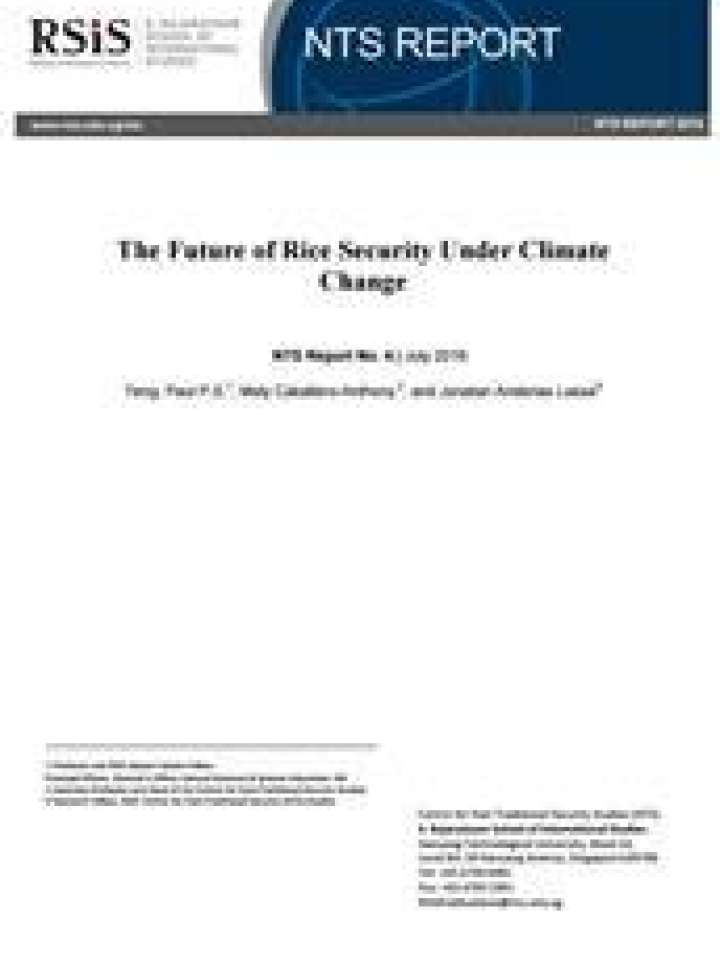The future of rice security under climate change
This report provides a brief overview of projected rice security indicated by future potential yield under elevated carbon dioxide levels. The study finds that the impact of climate change on rice will be more negative than positive. Heat stress of rice crops and extreme weather events, such as floods and drought, may threaten food security. A lack of anticipatory adaptation and mitigation could lead to significant losses in yield and production.
This study identifies public actions and policy responses in India, Thailand and Vietnam. The following adaptation and mitigation measures are recommended:
- Increase adaptive capacity and ensure multiple-dimension adaptation actions to climate change. This includes ensuring that countries invest in technology, create incentives for farmers and producers to adopt adaptive technology, improve irrigation infrastructure and build the capacity of agricultural extension officers and farmers;
- Support market integration to help mitigate price shocks;
- Strengthen regional cooperation framework to help reduce uncertainty and information asymmetry in the market;
- Build a global dataset on adaptation knowledge in such a way that can be accessible to rice farmers around the world. International research organisations and universities should work together to build knowledge and best practices in rice adaptation and resilience-building;
- Spread adaptation knowledge using smartphones and web-based application;
- Promote the inclusion of crops including rice and livestock to be part of the implementation agenda of the Warsaw International Mechanism for Loss and Damage associated with Climate Change Impacts (Loss and Damage Mechanism).
Explore further
